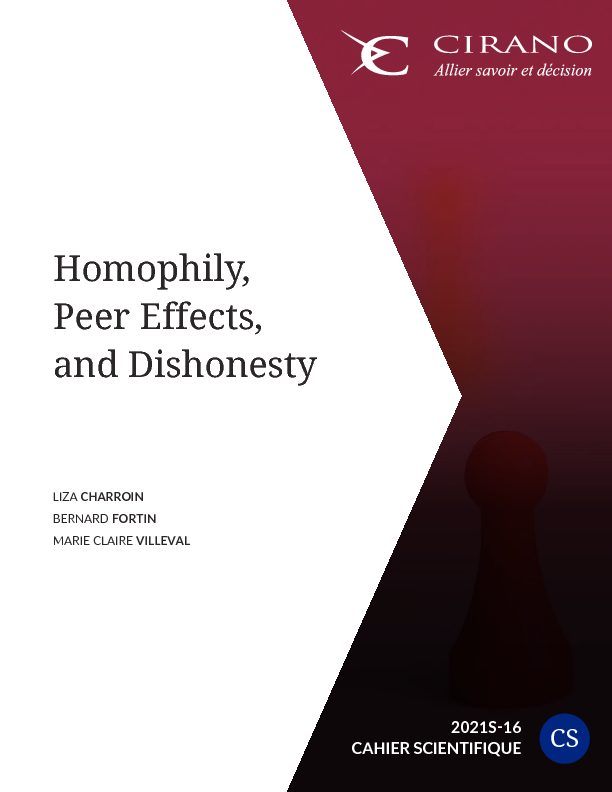Homophily, Peer Effects, and Dishonesty
If individuals tend to behave like their peers, is it because of conformity, that is, the preference of people to align behavior with the behavior of their peers; homophily, that is, the tendency of people to bond with similar others; or both? We address this question in the context of an ethical dilemma. Using a peer effect model allowing for homophily, we designed a real-effort laboratory experiment in which individuals could misreport their performance to earn more. Our results reveal a preference for conformity and for homophily in the selection of peers, but only among participants who were cheating in isolation. The size of peer effects is similar when identical peers were randomly assigned and when they were selected by individuals. We thus jointly reject the presence of a self-selection bias in the peer effect estimates and of a link strength effect.




